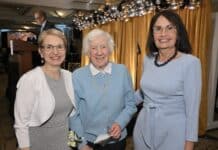
By: Dennis Richmond, Jr. (@NewYorkStakz)
My father, Mr. Dennis Richmond, Sr. came of age during the 1970s. In 1973, when my father was 18 years old, the United States president was Richard Nixon. American prisoners of war are released from Vietnam that same year. My dad told me plenty of stories about his adolescence. He remembers meeting The Godfather of Soul, James Brown, in California. There’s one movement that my dad witnessed as a young man that entrances me. That movement is the iconic Black Power Movement.
Perhaps the most recognizable Black Power concept today is the powerful cultural expression of the 1960s and 1970s. People held their fists in the air as a sign of Black Power. People wore their natural hair as a sign of Black Power. People even attended HBCUs as a sign of Black Power. People followed ideologies from The Honorable Elijah Muhammad, Malcolm X, Rev. Martin Luther King, Jr., and The Black Panther Party’s Huey P. Newton and Bobby Seale. With all the fashion statements, natural hair, and cultural leaders of the 1970s, I had to ask myself, “What does Black Power look like in 2021?” To answer this question, I had conversations with young adults from across the country.
Alajah Whitehead, Tulleehsa Burbage, and Javonte Spencer were all my interviewees. Spencer, from Blythewood, SC, said that Black Power in 2021 is “influence.” He went on to say that “other cultures copy Black culture [and] mostly Black people start everything influential on social media.” While Javonte Spencer reminds us that social media plays a significant role in Black Power, Tulleesha Burbage, out of Philadelphia, PA, says Black Power in 2021 is “standing up for someone who can’t stand up for themselves.” She had done this financially when she paid for a stranger’s tab when she was out one day.
Spencer uses social media, Burbage helps people financially and with their well-being, and Alajah Whitehead does both. A Yonkers native, a Mercy College graduate, and my oldest niece, Whitehead, is an essential worker. She works at a hospital in White Plains, NY. To her, Black Power in 2021 is “success.” It’s “being free to accomplish whatever you want, without people trying to hold you down,” she said. Like Tulleesha Burbage, with Alajah Whitehead, Black power isn’t just about individualism. Black Power is “being where we want to be in life as a collective,” she said.
While the younger generation may have their views on Black Power in 2021, it’s my father’s view that resonates the most with me. Now, a 65-year-old Bronx resident, my dad reflected on what America saw in 2020. “People of all social-economic backgrounds, sexual orientations, genders, and religious practices came together for peaceful Black Lives Matter protests in 2020,” he said. “It’s no longer Black Power. It’s social unity.”
Editor’s Note: Once again, for 2021, we are fortunate to have Dennis Richmond Jr. write a story every week in February for Black History Month. Mr. Richmond is Advocacy Programs Manager at the HBCU Foundation a nationally focused, federally recognized nonprofit organization whose aim is to provide scholarship aid to deserving students attending Historically Black Colleges and Universities. He is also a teacher and educator who lives in Yonkers.





